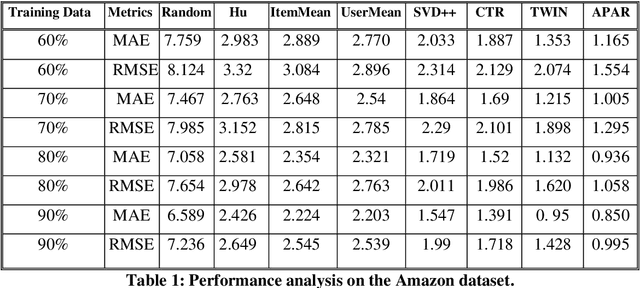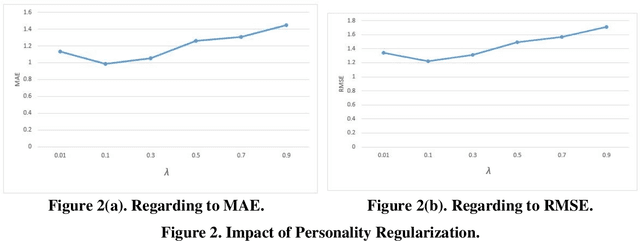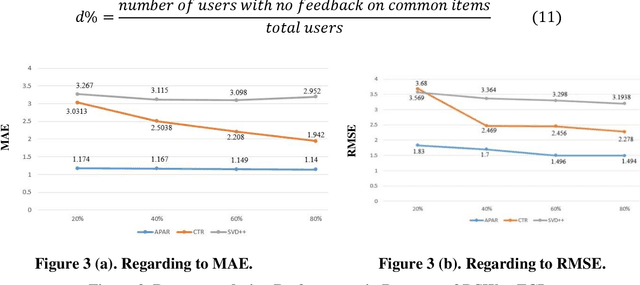Seyed Mohssen Ghafari
Macquarie University- Sydney-Australia
Towards Time-Aware Context-Aware Deep Trust Prediction in Online Social Networks
Mar 21, 2020Abstract:Trust can be defined as a measure to determine which source of information is reliable and with whom we should share or from whom we should accept information. There are several applications for trust in Online Social Networks (OSNs), including social spammer detection, fake news detection, retweet behaviour detection and recommender systems. Trust prediction is the process of predicting a new trust relation between two users who are not currently connected. In applications of trust, trust relations among users need to be predicted. This process faces many challenges, such as the sparsity of user-specified trust relations, the context-awareness of trust and changes in trust values over time. In this dissertation, we analyse the state-of-the-art in pair-wise trust prediction models in OSNs. We discuss three main challenges in this domain and present novel trust prediction approaches to address them. We first focus on proposing a low-rank representation of users that incorporates users' personality traits as additional information. Then, we propose a set of context-aware trust prediction models. Finally, by considering the time-dependency of trust relations, we propose a dynamic deep trust prediction approach. We design and implement five pair-wise trust prediction approaches and evaluate them with real-world datasets collected from OSNs. The experimental results demonstrate the effectiveness of our approaches compared to other state-of-the-art pair-wise trust prediction models.
Enabling the Analysis of Personality Aspects in Recommender Systems
Jan 07, 2020



Abstract:Existing Recommender Systems mainly focus on exploiting users' feedback, e.g., ratings, and reviews on common items to detect similar users. Thus, they might fail when there are no common items of interest among users. We call this problem the Data Sparsity With no Feedback on Common Items (DSW-n-FCI). Personality-based recommender systems have shown a great success to identify similar users based on their personality types. However, there are only a few personality-based recommender systems in the literature which either discover personality explicitly through filling a questionnaire that is a tedious task, or neglect the impact of users' personal interests and level of knowledge, as a key factor to increase recommendations' acceptance. Differently, we identifying users' personality type implicitly with no burden on users and incorporate it along with users' personal interests and their level of knowledge. Experimental results on a real-world dataset demonstrate the effectiveness of our model, especially in DSW-n-FCI situations.
* This article contains 3 figures and 14 pages
 Add to Chrome
Add to Chrome Add to Firefox
Add to Firefox Add to Edge
Add to Edge